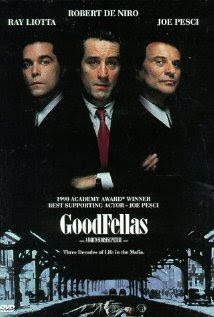
"Locked from the inside. That can only mean one thing. And I don't know what it is."
(Peter Falk as Sam Diamond)
(Peter Falk as Sam Diamond)
The Plot: "Murder by Death" begins with Lionel Twain (Truman Capote) inviting the five greatest living criminologists to have dinner at his home. These individuals are intended to be famous detectives from novels, all of whom have a perfect record (no case has gone unsolved or has been solved incorrectly). They are Milo Perrier (James Coco), Sam Diamond (Peter Falk), Jessica Marbles (Elsa Lanchester), Dick Charleston (David Niven), and Sidney Wang (Peter Sellers). Each of them come with someone else: Perrier comes with his chauffeur, Marcel (James Cromwell); Diamond comes with his secretary, Tess Skeffington (Eileen Brennan); Charleston comes with his wife, Dora (Maggie Smith); Marbles comes with her nurse, Mrs. Withers (Estelle Winwood); and Wang comes with his adopted son, Willie (Richard Narita).
The ten of them are seated for dinner, where their host finally reveals himself and outlines the plan for the weekend: He wagers $1 million against their reputations that he can stump them with a murder mystery. One of the people seated at the table will be killed - he or she will be stabbed 12 times with a butcher knife. This is to happen at midnight.
At midnight, they learn that the one who dies is in fact their host. He is stabbed, 12 times, just as he said. The ensuing investigation involves disappearing blind butlers (Alec Guinness), disguises on top of disguises, and an ending you don't ever see coming!
The Relevance: This is another film that centers on the idea of private detectives, though in this case, they are detectives and criminologists from popular novels. It's hard not to see the correlation of Jessica Marbles to Miss Marple or Jessica Fletcher; Sam Diamond is similar to Sam Spade of "The Maltese Falcon" (even the voice and language used by Peter Falk in portraying Sam Diamond is similar to the mannerisms and demeanor of Humphrey Bogart in the film adaptation). Dick Charleston seems to be a connection to all "gentlemen detectives" in the novel world, encompassing names like C. Auguste Dupin (Edgar Allan Poe), Sherlock Holmes (Sir Arthur Conan Doyle), and Lord Peter Wimsey (Dorothy Sayers). Unlike other gentlemen detectives (e.g. Roderick Alleyn and Inspector Morse), these gentlemen detectives are amateur civilians rather than actual police officers. Perrier is an obvious duplicate of Hercule Poirot (Agatha Christie) and Sidney Wang is clearly Charlie Chan (Earl Derr Biggers).
In terms of murder mystery as a genre, "Murder by Death" is much-duplicated in several respects. The idea of a mystery dinner party in which guests must solve crimes is obviously connected to the later film "Clue" (1986), and the use of various aspects (e.g. dinner party, many different detectives in one room, and murder mystery "whodunnits") are found in countless films.
"Murder by Death" is witty in an old-school fashion, often relying on situational or verbal comedy rather than slapstick. It's a more refined comedy that sets it apart from newer comedies that rely on stupidity to make people laugh.







